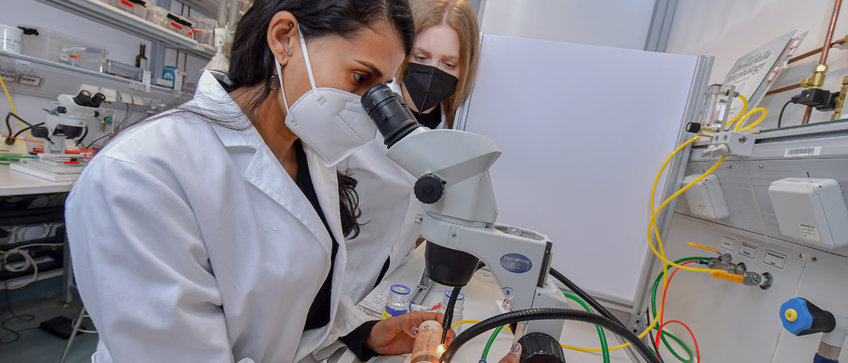
Scientific Career Development
Career Development within the MPG
The Max Planck Society, in conjunction with the EAF Berlin organization (a network for advising businesses and political organizations in supporting equal opportunity, diversity and work-life balance in the workplace), has launched the „Sign-up! Careerbuilding” program. Seminars are for executives.
Career Steps Opportunities started March 2017
Career Steps Opportunities not only provides comprehensive information on the MPG programs in the areas of career development and properly balancing life and work, but also provides the opportunity for researchers in facilities across Europe to reflect on their own perceptions of this subject.
The "International Max Planck Research Schools (IMPRS)" have been an integral part of the MPG's doctorate program since the year 2000. Talented young scientists are given the chance to study for their doctorate under excellent conditions. The common characteristic of these graduate programs at the Max Planck Institutes are the curricula, including but not limited to: research seminars and soft skills workshops as well as close cooperation with local universities. For more information about our institute’s graduate program, please visit the IMPRS Homepage.
The MPG offers excellent scientists further research possibilities through the establishment of independent research groups, which are equipped with personnel and material resources for five years. Some of these groups are reserved for under-represented gendered scientists, such as women, only.
Special Support Programs for female scientists within the MPG
Lise-Meitner excellence program started in spring 2018
With the help of this program the Max Planck Society seeks to attract outstandingly qualified female junior scientists by offering them a long-term perspective.
The Max Planck Society has established this mentoring program for its young female scientists (from diploma student to highly qualified scientist).
Christiane Nüsslein-Volhard Foundation
This Foundation for the Promotion of Science and Research supports talented young scientists with children in order to provide them with the necessary freedom and mobility for a scientific career.
With the Elisabeth-Schiemann-Kolleg program, scientific members of the Max Planck Society can support outstanding young scientists after the postdoctoral phase on their way to a life-time professor or director's office at research facilities.